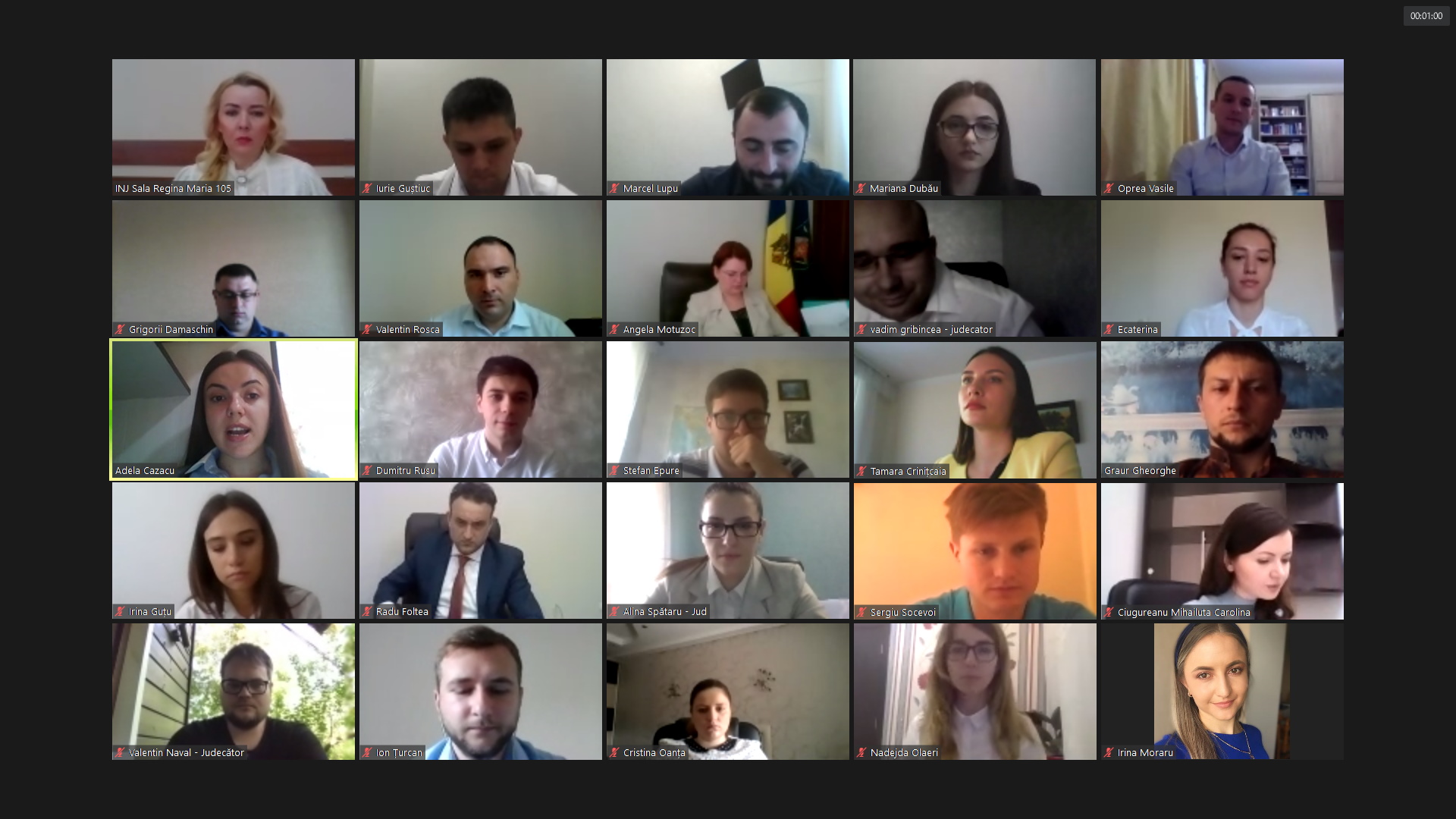
"Human rights, the state of emergency and the rule of law" was the motto of the 6th edition of the paper contest organised by the National Institute of Justice for the 13th promotion of trainees. The developed reports were presented online on Wednesday, June 10, 2020, by the candidates to the position of judge, and on Saturday, June 13, 2020, by the candidates to the position of prosecutor.
The winners of this year's edition were: Tamara Crinitcaia and Marcel Lupu - 1st place, Gheorghe Graur, Vadim Gribincea and Adela Cazacu - 2nd place, Vasili Oprea and Stefan Epure - 3rd place – future judges; Victor Cimbir and Nadejda Olaeri - 1st place, Maria-Lucia Candu - 2nd place, Cristina Mahu and Nicu Osoianu - 3rd place – future prosecutors.
A total of 30 papers were submitted to the competition, addressing the particularities of the state of emergency with regard to derogations from respecting human rights and fundamental freedoms, procedural mechanisms to guarantee the right to a fair trial, the right of the press to communicate to the general public complete and official information on the health of persons and on the measures taken by the authorities, respect for the right to protection of personal data of patients, freedom of movement, freedom of assembly and freedom of religion.
The contestants highlighted certain aspects and results of the research on the chosen subject before a jury composed of Diana Scobioala, the Director of the National Institute of Justice, Radu Foltea, State Secretary of the Ministry of Justice, Angela Motuzoc, the President of the Superior Council of Prosecutors, Carolina Ciugureanu-Mihailuta, member of the Superior Council of Magistracy, Oleg Rotari, the Governmental Agent of the Republic of Moldova before the ECtHR, and Valentin Rosca, the head of the Continuous Training Section of the NIJ. The papers presented within the competition were assessed according to the following criteria: the originality of the presentation, the proper identification and explanation of the main reflected issues, the reasoning of the exposed opinion, the correctness of the terms used and the adequate legal language.
